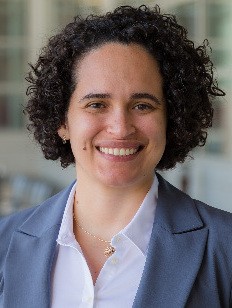In this Sustainable Energy Seminar, Dr. Juliana Pacheco Duarte, Assistant Professor of Engineering Physics, will discuss the potential to further increase electrical output from existing nuclear power plants using advanced materials and fuels, as well as associated safety analyses.

Abstract:
Power uprates in Light Water Reactors (LWRs) have been used by U.S. utilities to increase their cost-effectiveness by producing more electricity with a nominal cost increase. Still, recent studies developed by the Nuclear Energy Institute (NEI) suggest that further power uprates can be justified by state and federal government production credits and tax incentives to reduce U.S. carbon emissions. The superior material behavior and corrosion-resistant properties of near-term accident tolerant fuels (ATFs), proposed by industry after the Fukushima accident, can make it possible to allow power uprates in LWRs beyond the current levels; it requires, however, in-depth operational and safety analyses to evaluate potential impacts.
This seminar will present an overview of the power uprates in the U.S. and current research findings on two-phase flow instabilities in boiling water reactors (BWRs). We used experimental data commissioned by the U.S. Nuclear Regulatory Commission to understand the instability boundaries of density wave oscillations under conditions relevant to BWR power uprates. The data were collected at the KATHY facility in Germany to represent a full-scaled rod bundle under anticipated transient without scram (i.e., without the reactor shutdown).
